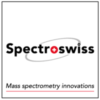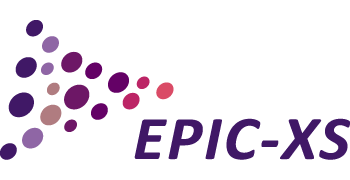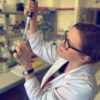
User Stories
Companies

Dr. Yury Tsybin, CEO and Founder, Spectroswiss, Switzerland
Project Title: Top-down and middle-down approaches for analysis of low abundant proteoforms of monoclonal antibodies.
The project will be executed at the proteomics facility at the Institut Pasteur, France
Dr. Tsybin has commented from his perspective as an SME, “EPIC-XS offers extremely valuable opportunity to explore and develop a scientific hypothesis emerged from the needs that we encounter in our industrial applications. The ability to test this hypothesis in a leading European laboratory, equipped with the state-of-the-art mass spectrometers and supported by the experts – is the best way to answer our questions.
Yury went on to explain that, “The provided financial support is instrumental in realizing such projects. We envision the obtained results to have a direct impact on the way we (and others) will perform structural analysis of monoclonal antibodies, and potentially other complex proteins, in the near future.”
 Dr. Kristina Masson, Co-Founder, Acrivon Therapeutics, USA (headquarters), Sweden and Denmark
Dr. Kristina Masson, Co-Founder, Acrivon Therapeutics, USA (headquarters), Sweden and Denmark
Project Title: Phospho-Proteomic Drug Profiling for Optimized Patient Selection in Oncology Clinical Trials
The project was executed at the proteomics facility at the University of Copenhagen
EPIC-XS also has facilitated access to top-of-the-range proteomics technologies, significantly beneficial to small biotech start-up companies such as Acrivon Therapeutics. Dr. Kristina Masson co-founder of Acrivon Therapeutics explains, “Our project involves proteomic profiling of drugs in different tumor models, and through the EPIC-XS infrastructure platform we have worked with mass spectrometry experts at Copenhagen University to perform analyses. As a small biotech startup with very limited resources, the support from such a platform is incredibly valuable and being part of this consortium has been a very good experience.”
Academic, Public, Private Institutions

Dr. Markus Galhuber, The Medical University of Graz, Austria
Project Title: Hepatic p53 interactome under nutrient stress
The project was executed at Utrecht University’s Biomolecular Mass spectrometry and Proteomics Dept. in The Netherlands.
Markus Galhuber chose to visit the UU access site and is grateful for this proteomics initiative. Markus supports EPIC-XS as he explains, “I would like to thank the organizers of EPIC-XS for making my project and research stay at the Utrecht access site possible. Due to the excellent organization and support, I always felt safe and well taken care of, despite the general COVID19 restrictions. I was able to push ahead with my scientific projects guided by great scientific expertise at the site and we produced high-quality proteomics data, not only addressing our initial hypothesis but generating many more insights leading to potential future projects. I can confidentially state, that the project’s success and personal support by far exceeded my previous experiences within scientific collaborations. Thank you very much!”
Dr. Małgorzata Heidorn-Czarna, University of Wrocław, Poland
Project Title: Identification of protein substrates for the Arabidopsis mitochondrial FTSH4 and OMA1 metalloproteases by the shotgun proteomics and COFRADIC-based N-terminomics.
This project was executed at the VIB proteomics core access site in Ghent, Belgium.
Dr. Malgorzata Heidorn-Czarna, explained that the technology offered by the EPIC-XS infrastructure is not readily available in Poland, and “by having transnational access to the expertise knowledge in the EPIC-XS consortium and the funding from the program, these experiments were made possible within a very short timeframe.”

Dr. Esteban Gurzov, Université libre de Bruxelles
Project Title: The role of protein tyrosine phosphatases in obesity-induced liver cancer
The project was executed at Utrecht University’s Biomolecular Mass spectrometry and Proteomics Dept. in The Netherlands.
Dr. Gurzov, explained, “In the last months, my research has benefitted tremendously from the EPIC-XS initiative. Through contact with Dr. Wei Wu (assistant professor at the Utrecht access site), it became possible to perform comprehensive screens for expressed and active PTPs from extremely limited human liver tissue biopsies. This specialized analysis would not have been possible without EPIC-XS, and this transnational collaboration would also be difficult without coordinating support from EPIC-XS staff.”
Dr. Sven van Bael, Katholieke Universiteit Leuven, Belgium
Project Title: Targeted neuropeptidomics in Caenorhabditis elegans
The project was executed at the Bavarian Center for Biomolecular Mass Spectrometry, Technical University of Munich, Germany
EPIC-XS not only aids researchers to further their scientific research but also helps younger researchers to advance their scientific careers, a sentiment echoed by Sven, “EPIC-XS has granted me the possibility to directly interact with experts in the field of (targeted) mass spectrometry. Their experience and input were extremely helpful for my current research, and it will be something that I will take with me in my future career.”
You can read more about Sven’s visit to the TUM access site here.

Dr. Sylvester Holt, University of Côte d’Azur, France
Project Title: Phosphorylation landscapes in highly divergent yeasts and yeasts with TOR kinase single nucleotide polymorphisms derived from cancer genomes.
The project was executed at the Bavarian Center for Biomolecular Mass Spectrometry, Technical University of Munich, Germany
As Sylvester Holt experienced, “Without the EPIC-XS grant, our project would have never reached the current level of scientific excellence. In addition, the large-scale nature of the project, which entails several hundreds of yeast samples, would have been impossible for us to realize without EPIC-XS support.”

Dr. André M. de Almeida, University of Lisbon, Portugal
Project Title: Modifications in cooked ovine meat: the effect of boiling on the muscle proteome in three breeds of different genetic background
The project was executed at the Proteomics Center FGCZ, Zurich, Switzerland
That this proteomics initiative is not limited in its access to specific genre’s in the Life Sciences has helped advance animal and veterinary science research. This is a sentiment communicated by André M. de Almeida, “EPIC-XS is an extraordinary initiative that allows researchers in all fields of life sciences to have access to state-of-the-art proteomics laboratories and platforms. It is particularly important for areas such as animal and veterinary sciences where the use of proteomics is rather uncommon, although increasing in the last ten years. This allows for much broader and complete research projects, effectively complementing traditional approaches.”
Andre goes on to explain, “Furthermore, working with EPIC-XS staff is a really nice experience as they are supportive, dedicated and very professional, successfully contributing to the quality and innovative nature of our research. Thank you EPIC-XS for making the difference.”
Dr. Alexandra Antunes, Technical University of Lisbon, Portugal
Project Title: Chemically induced cancer: new biomarkers by mass spectrometry-based methodologies
The project was executed at the CNIO Proteomics Core Unit, Spain
Together with her Ph.D. student, Dr. Alexandra Antunes spent one week in January 2020 at the CNIO access site. During this time, they could follow the processing of the samples, the mass spectrometric analyzes, and the downstream data interpretation. She was keen to point out: “This time at the CNIO access site has been very instructive for us. The interaction with EPIC-XS researchers is critical for this type of project, where the complexity of the data demands a significant knowledge of the technology. We hope these results will provide new insights into the relationship between chemicals and cancer.”




